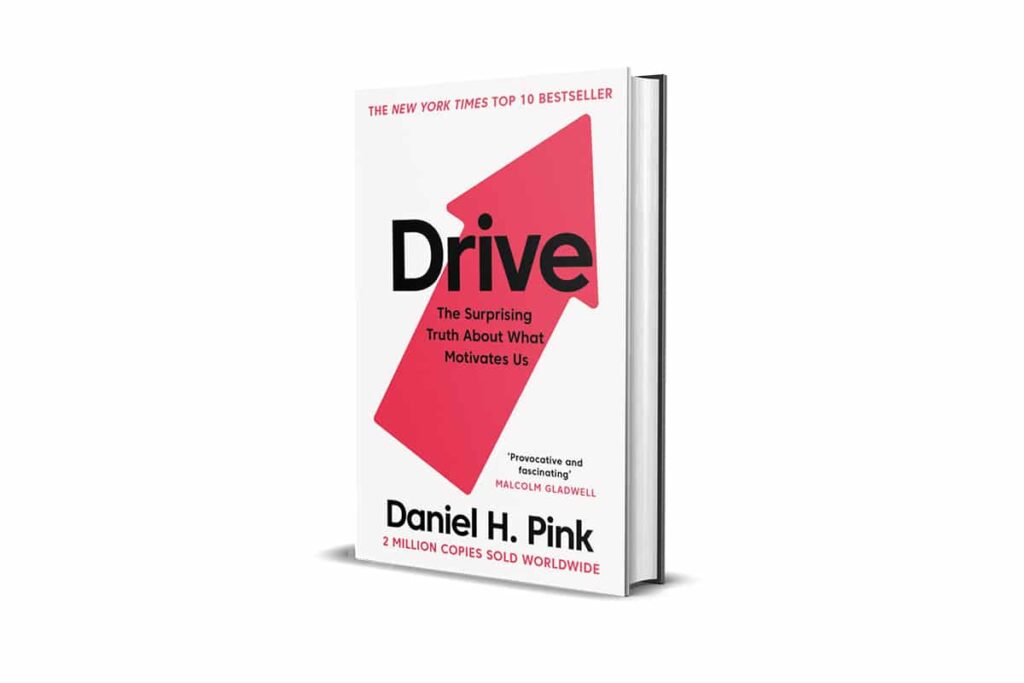
Written by American author Daniel Pink, Drive is one of the books which has had the biggest influence on my way of thinking about people management, leadership and motivation. You will have seen me mention elements of it around my website, and if you follow me on social media.
In Drive, Pink popularises ideas taken by the likes of Deci and Ryan (self-determination theory), Mihaly Csikszentmihalyi (Flow) and Maslow (Hierarchy of Needs) to dig into what motivates people, particularly from a work context.
Here are the three takeaways from the book…
1) There are three factors of intrinsic motivation
Intrinsic motivation is found from within, as opposed to something which they are given (i.e. rewards such as money).
The three factors include:
Autonomy
This is having a sense of being in control of your own life and decisions. From a work perspective, autonomy may include the way you approach tasks, or how you structure your day. Lose control of your autonomy and you’ll quickly become demotivated and disengaged.
Mastery
Mastery is the pursuit of skill and knowledge that puts you at the very top of your game. Continuous learning, and professional and personal development are key factors to ensuring that this is the case in a work context.
Purpose
This relates to understanding how you play a part in the bigger picture. In an organisation, being aware of the mission and your role in achieving it allows you to feel aligned to a purpose, and can help build a strong sense of teamwork and camaraderie.
2) Extrinsic motivation > intrinsic motivation
Through much of the book, Pink argues that intrinsic motivation is far more powerful than extrinsic factors. And whilst there’s a place for both, knowing when each should apply is key to unlocking someone’s potential.
In a world where many roles are reliant on the knowledge and creative thinking of people, intrinsic motivation becomes far more important.
As an example, extrinsic motivation works when someone is responsible for carrying out routine tasks and projects, and where there’s a clear system for getting things done. For instance, more money could motivate someone to work faster and produce more output on a factory floor.
However, in a world where many roles are reliant on the knowledge and creative thinking of people, intrinsic motivation becomes far more important. As Pink states, “intrinsic motivation (is) the drive to do something because it is interesting, challenging, and absorbing”.
In the days of ‘carrot and stick’ management, extrinsic motivators were normal ways to get people to get things done. With the shift towards knowledge work, motivation needs to help people to think creatively, meaning the same rewards and punishments don’t work. Which leads nicely onto the next point…
3) Rewards can backfire
Think about the last time you were being measured against something, perhaps with a reward (such as a monetary bonus) on offer if you hit your target. Then think about what you were focused on when doing your work.
In all likelihood, you were probably thinking about getting the bonus, as opposed to whether you were enjoying what you were doing, being innovative, or producing a high quality output.
You may have even been taking shortcuts to get there.
Rewards can work in some settings and environments. For example, when there’s a clear path to a solution, it can help motivate that individual to speed up. But when there could be multiple paths and an element of creative thinking is required, thinking outside the box is not the first priority.
Pink argues that rewards can limit both our depth and breadth of thinking, and that instead, such rewards should either be a surprise (i.e. unexpected to the recipient), or intangible (such as feedback or praise delivered on a one-on-one basis).
